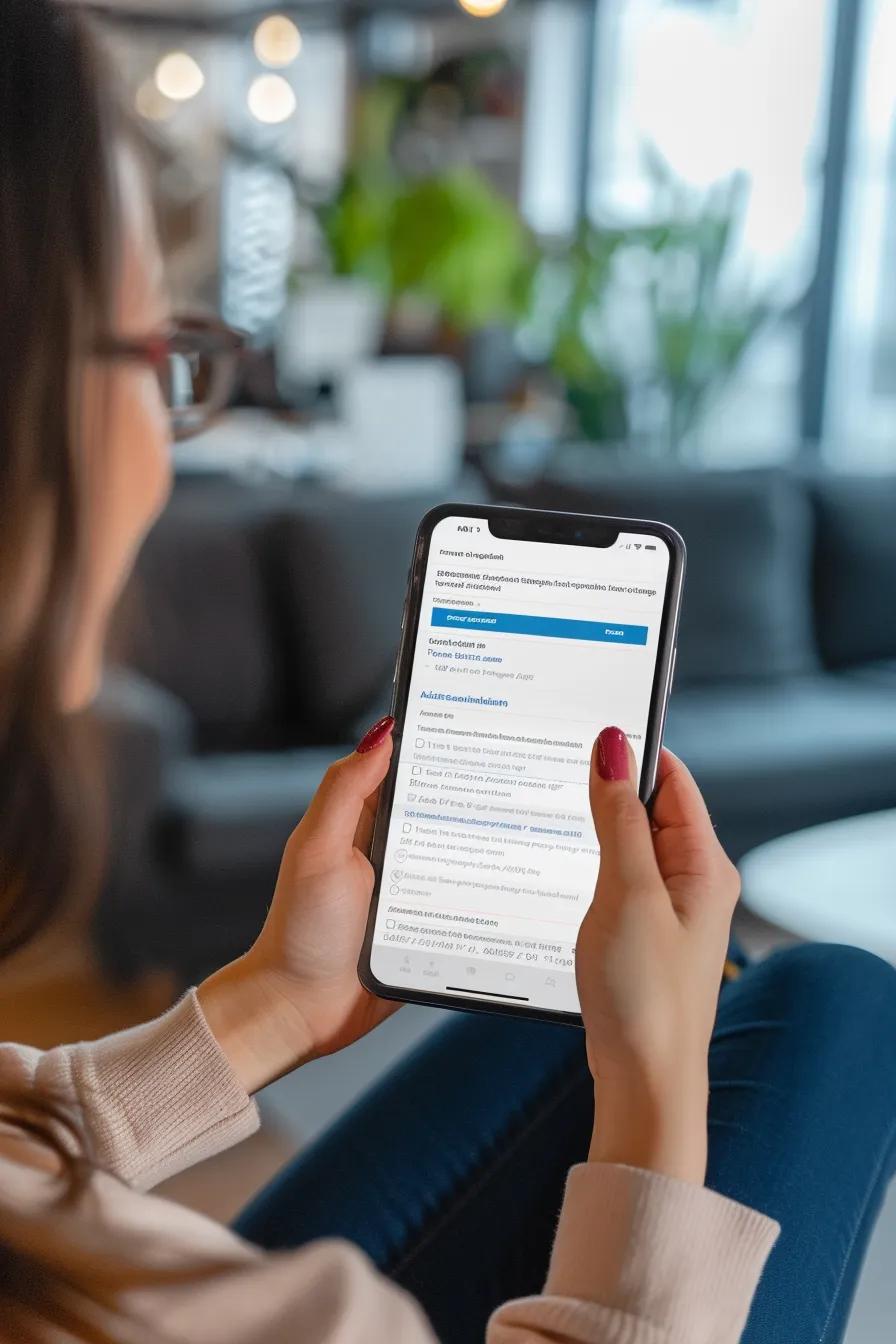The swift pivot to distance education has underscored the critical role of robust Learning Management Systems (LMS) in enhancing knowledge acquisition and skill development. This post delves into the necessity of LMS solutions in education, their advantages in fostering productivity, and how their lack can steepen the learning curve for educators and learners alike. You’ll glean insights on deploying the right LMS for your institution and how Markanyx™ Solutions Inc.’s expertise aligns with your educational goals, promising a more efficient, secure, and personalized learning experience.
Understanding the Transition to Remote Learning

As the landscape of education shifts towards virtual spaces, recognizing the factors driving online education growth has become paramount. You’re witnessing a tangible move from traditional lectures to digital platforms, accelerated by global events that have reshaped learning methods. The upcoming sections will dissect these changes, analyze the enhanced usability of educational software and its impact, and further explore opportunities like pursuing an early childhood education degree online. Prepare to gain insights into the seamless integration of these technologies into your learning strategy.
Recognizing Factors Driving Online Education Growth
The surge in remote education has been largely fueled by sophisticated analytics, allowing you to track learner progress and adapt strategies accordingly. Particularly in higher education, institutions offering an online accounting degree or similar certifications now see LMS as indispensable. They enable continuous monitoring and training customization, a trend that has not only met immediate educational needs but set the stage for a future where personalized learning paths become the norm.
Furthermore, the integration of robust APIs within university learning management systems has revolutionized the way educators and learners interact with educational content and each other. APIs facilitate real-time data exchanges and integrations with other educational tools, expanding the capabilities of LMS well beyond content delivery. This seamless connectivity ensures that your training ecosystem is more cohesive, efficient, and responsive to the evolving demands of online education.
Analyzing the Impact of Global Events on Learning Methods
Recent global events have propelled the education sector into a swift transformation, revealing an increased necessity for effective Learning Management Systems (LMS). As the demand for affordable online colleges has surged, educators and learners alike have pivoted to remote methodologies, with a key focus on LMS platforms that offer comprehensive support in English language learning, research facilitation, and other academic pursuits.
The remarkable adaptation to mobile app integrations within traditional learning management systems symbolizes an educational evolution you can’t afford to overlook. These technological enhancements provide you with access to learning materials anytime, anywhere, not only broadening the horizons for institutions but also delivering on the promise of educational accessibility and learner autonomy for students worldwide.
The pivot to remote learning is not just a change; it’s a new frontier for education. Now, let us turn to the tools that make this possible, where Learning Management Systems are the architects of progress.
Examining the Role of Learning Management Systems

In the quest for educational excellence, Learning Management Systems (LMS) have become pivotal in modern education. Providing an automated, cohesive interface to support remote instruction, LMSs cater to a myriad of teaching methodologies, including asynchronous learning and enhance online classes for colleges with unprecedented accessibility. Upcoming discussions will dig deeper into defining the purpose of LMS and exploring their support role in remote learning environments.
Defining LMS and Its Purpose in Modern Education
Learning Management Systems (LMS) are revolutionizing modern education by transforming how you manage coursework and enhance learning experiences. These platforms serve as centralized hubs where educators can assign homework, track progress, and interact with students—powerful whether you’re learning Microsoft Excel or linguistics. For you, an LMS is about streamlining educational endeavours, ensuring that tasks like submitting assignments or accessing course materials via email are intuitively managed within a unified system.
The inclusivity provided by LMS has also been instrumental in supporting students with disabilities, offering you customizable experiences tailored to your needs. With features that can adapt content for various disability requirements, an LMS ensures that every student has the opportunity to learn effectively. Your educational journey is enriched as these systems facilitate collaboration and provide various interactive tools, ensuring equitable access and a comprehensive learning environment, irrespective of physical location.
Exploring How LMS Supports Remote Instruction
LMS software provides an essential backbone for remote instruction, facilitating an environment where even kindergarten-level learners can engage with digital materials. Your child’s first foray into e-learning is supported by user-friendly interfaces that make navigation on a tablet or computer as natural as play. For you as a parent or educator, the ability to monitor progress and deliver personalized content ensures that your youngest students are not left behind in the digital shift.
For those seeking higher education, LMS platforms are indispensable in managing distance education courses and streamlining the transfer credit process. As you navigate your academic journey, the LMS serves as a centralized portal where course requirements, assessment results, and educational resources converge, simplifying your path towards academic success. Whether you’re completing coursework from afar or collaborating with peers across the globe, the right LMS makes distance learning not just possible, but efficient and engaging.
Learning Management Systems prove their worth by adapting to our needs. Now, delve into how the strategic use of an LMS unlocks remarkable benefits within the realm of education.
Advantages of Implementing LMS in Education

With the shift towards remote learning, Learning Management Systems (LMS) like Blackboard Learn and Google Workspace are redefining educational engagement and accessibility. You’ll witness enhanced learner interaction with dynamic tools, streamlined workflows for educators, and improved learning flexibility. In this exploration of LMS advantages, we discuss bolstering learner involvement, optimizing educational tasks, and expanding access to online college courses through technologies that support blended learning environments.
Enhancing Student Engagement With Interactive Tools
Implementing Learning Management Systems (LMS) such as Instructure, paired with Microsoft 365 or Google Suite, can significantly augment student engagement through interactive tools. Your students can collaborate in real time, a feature that’s invaluable whether you’re conducting a group project for an online marketing degree or gathering feedback on written assignments. The immediacy of this interaction echoes the dynamic nature of traditional classroom discussions, keeping students actively involved in the learning process.
The efficacy of an LMS in enhancing learner involvement is especially evident when policies around feedback are applied. As you manage your course, timely and constructive feedback becomes a cornerstone for student success. Leveraging these platforms, you can swiftly provide personalized insights and guidance, essential for driving improvement and maintaining student motivation throughout their educational journey.
Streamlining Educator Workflows With LMS Features
In the realm of higher education, an effective LMS system serves as a much-needed ally in streamlining your administrative workload. For instance, when managing an online finance degree program, the integration of tools like Microsoft Teams directly into your LMS dashboard simplifies communication channels, centralizing discussions and grading, all in one accessible location. This not only saves you time but also boosts your productivity by reducing the complexity of handling multiple platforms.
Moreover, the LMS features you use can transform cumbersome tasks into manageable ones with automated processes. You can instantly update lesson plans, distribute materials, and assess student work with a few clicks—efficiencies that give you more time to focus on student engagement and outcomes. The intuitive design of such systems means even educators new to the digital interface can swiftly adapt and optimize their workflows, ensuring a consistent, quality learning experience for your students.
Improving Accessibility and Flexibility for Learners
Learning management systems are reshaping the accessibility of pursuing an online education degree by creating avenues that cater to diverse learning environments. For you as a teacher, the application extends beyond the confines of a traditional classroom, allowing curriculum delivery through any web browser, ensuring no student is disadvantaged by location or accessibility. This marks a pivotal shift towards inclusivity in education, making learning opportunities more equitable and flexible than ever before.
Moreover, the convenience offered by learning management systems streamlines curriculum management for educators, affording you the flexibility to update course content in real time. Whether you are adapting lesson plans to better suit the needs of your students or providing valuable feedback, the ease of use offered by an LMS through a simple web browser enhances your ability to maintain a dynamic and responsive educational experience. Your commitment to teaching can now extend fluidly across digital realms, touching the lives of learners regardless of their physical realities.
While the right LMS can shape a rich educational landscape, there is a stark contrast when it is absent. The move to distant classrooms without this foundation lays bare the hurdles educators and students must overcome.
Challenges Faced Without LMS in Remote Education

As you embrace the shift to digital learning, the absence of robust platforms such as Totara Learn can surface significant challenges. Navigating a campus virtually necessitates tools that facilitate not only personalized learning but also effective communication. The looming obstacles in managing online courses and bridging communication gaps without LMS tools will be the crux of our forthcoming discussion. These insights aim to deepen your understanding of the pivotal role LMS plays in modernizing educational delivery and supporting student success in a language they comprehend.
Identifying Obstacles in Managing Online Courses
Without a robust learning management system (LMS) like Moodle or Totara LMS, you could face significant barriers to online course management. The lack of centralized classroom management tools can lead to fragmented communication and inconsistencies in delivering course materials over the Internet. Educators and students often struggle to maintain an organized timeline of assignments and discussions, causing avoidable stress and confusion in the virtual learning environment.
Imagine attempting to provide a quality education experience solely via disparate software as a service (SaaS) platforms; the challenges compound. You could find yourself juggling multiple logins, interfaces, and data sources, which impacts the effectiveness of instruction and the ability to track student progress. An integrated LMS streamlines these elements into a single, coherent interface, enhancing the overall educational journey for both you and your learners.
Addressing Communication Gaps Without LMS Tools
In the realm of remote science education, the absence of a unified LMS tool like Google Classroom can introduce substantial barriers to communication. Without these platforms, you might find your team grappling with disjointed email chains or unsupported file formats, leading to vital information slipping through the cracks. A centralized LMS library acts as a lifeline, coordinating communication channels and preserving academic integrity.
Your ability to convey nuanced concepts in a field as intricate as science hinges on the clarity and reliability of your tools. Imagine coordinating a laboratory assignment or complex theoretical discussion through scattered, basic communication apps; the risk of miscommunication escalates. An LMS offers streamlined workflows and integrated tools that ensure messages are not lost, bolstering understanding and teamwork amongst learners and educators alike.
Remote education, absent a proper learning system, is a ship adrift. Let’s chart a course to the stars with features that steady the voyage and guide us true.
Essential Features of Effective Learning Management Systems

Effective Learning Management Systems (LMS) are foundational to the ecosystem of remote learning, offering critical support for both educators and learners. As we delve into key functionalities, you’ll see how features for tracking student progress, multimedia integration for dynamic learning experiences, and stringent security and privacy protocols are vital. Up next, we spotlight the use of these functions for effective collaboration, the importance of tools like Zoom for synchronous learning, and how open-source LMS options and robust content creation tools enhance your educational services.
Utilizing Functions for Tracking Student Progress
In the wake of the pandemic, the necessity for classroom management tools within Learning Management Systems like Moodle and Totara has intensified, enabling you to monitor your learners’ progress with precision. These platforms provide real-time analytics, allowing you to tailor your educational approach by identifying which students need additional support, guaranteeing that no one falls behind as you oversee their academic journey.
Effective onboarding onto an LMS signals the beginning of a seamless educational experience, and incorporating functions that track student engagement, course completions, and assessment outcomes is paramount. With these insights, you can swiftly respond to learning patterns and adjust your teaching methods, ensuring that each student benefits from a personalized learning environment that is both supportive and challenging.
Integrating Multimedia for Engaging Learning Experiences
In today’s digital classroom, integrating multimedia into a Learning Management System (LMS) elevates your educational experiences far beyond static textbook materials. Platforms equipped with comprehensive content management systems allow you not only to incorporate videos, interactive modules, and digital replicas of physical texts but also to create a rich multimedia environment that fosters deeper engagement with the course materials, reinforcing your journey toward achieving that coveted diploma.
Your ability to cite sources, reference scholarly work, and include a breadth of multimedia elements within an LMS fortifies your understanding of complex topics. When these resources are readily accessible through a user-friendly platform, you significantly enhance the efficacy of both teaching and learning, ensuring every citation is not just a reference but also an opportunity for exploration, guiding you to a more comprehensive understanding of the subject matter.
Ensuring Security and Privacy in LMS Platforms
In the digital era, security and privacy are paramount in any technological application, especially within Learning Management Systems used for school and collaborative learning. These platforms ensure that video lectures, multimedia coursework, and sensitive student information are protected with stringent security protocols and encrypted cloud storage solutions. As you navigate your educational journey, rest assured that the right LMS is designed with robust safeguards, keeping your academic records secure and your learning experience seamless.
As a facilitator or participant in remote education, you rely on the LMS platform’s capacity to safely host collaborative learning sessions and multimedia interactions. The integration of advanced security measures within these systems safeguards your communications, ensuring that discussions, shared videos, and group projects are confined to authorized users only. You can engage confidently, knowing that your contributions to the virtual classroom and your access to cloud storage remain shielded from unauthorized access, preserving the integrity of the educational environment.
The right tools forge strong minds. Now, let’s see how learning systems are shaping a smarter future.
LMS Shaping the Future of Education

As we anticipate trends in educational technology, you’ll see that Learning Management Systems (LMS) are at the forefront of innovation, shaping programs to cater to specific learner needs. This section unpacks how LMS applications are fostering personalized learning and heightened student engagement while also considering organizational costs. Expect a thorough exploration of the strategic integration of these systems into educational settings, affirming their pivotal role in the evolving landscape of remote learning.
Anticipating Trends in Educational Technology
As technology continues to shape the educational landscape, you can anticipate a more immersive learning experience through gamification techniques in LMS. By transforming traditional quizzes into interactive challenges, learners gain deeper engagement and retention, essential components for those pursuing an online teaching degree or other certifications. This trend not only caters to the digital-native generation but also injects a sense of excitement into the learning process, keeping you motivated and eager to progress.
Additionally, the future holds advanced LMS features that support real-time tutoring and personalized feedback, further refining the remote learning experience. As you strive for higher education online, the integration of AI-driven tutoring systems within LMS platforms will offer in-depth support, adapting to your unique learning pace and style. These technological advancements ensure that pursuing an online teaching degree is not a solitary journey but one guided by intelligent feedback and support mechanisms tailored to your needs.
Fostering Personalized Learning With LMS Applications
With Learning Management Systems (LMS) at your disposal, pursuing an online engineering degree becomes a tailored experience sculpted by the software to fit your individual needs. The interface seamlessly serves up course information and content, dynamically adjusting to your pace and performance. This personalization ensures that you are not just absorbing information but engaging with it in a way that optimizes your learning outcomes, all while considering price and access barriers.
LMS applications empower you to traverse the complexities of engineering concepts with tools designed to accommodate diverse learning styles. Featuring software that simplifies navigation and presents complex information in digestible segments, these platforms make daunting subjects more approachable. The carefully crafted user interface invites you to delve deeper into study materials, transforming your interaction with information into an engaging educational journey that moves at your rhythm, ensuring you derive maximum value from every learning opportunity.
Conclusion
The rapid evolution of remote learning underscores the indispensable role of Learning Management Systems (LMS) in providing dynamic, accessible, and secure educational experiences. With an LMS, educators can centralize curriculum management, customize learning paths, track student progress, and promote interactive, collaborative learning environments—ensuring that every learner receives the support they need. As the educational landscape transforms, LMS platforms like Totara Learn empower schools and institutions to adapt to diverse student needs, uphold high academic standards, and foster meaningful digital engagement. Embracing LMS technology is essential for the growth and effectiveness of education in our increasingly digital world, offering a foundation for success in remote and hybrid learning.
Ready to elevate your school’s remote learning strategy? Contact Markanyx for a free assessment and demo. Let us show you we can support your institution in delivering a personalized, adaptable, and impactful learning experience.





